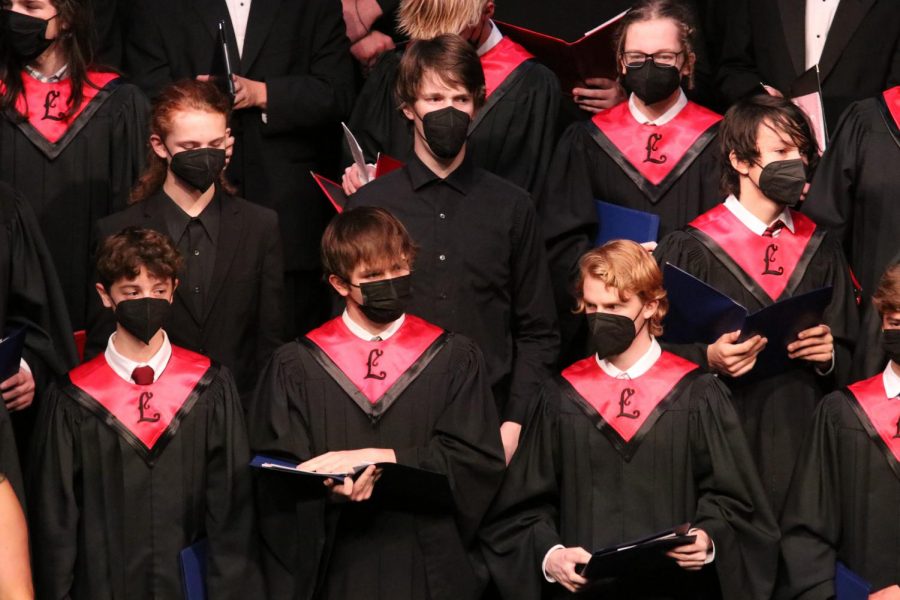The tangible impacts of music classes
December 16, 2021
Choir members prepare to begin their concert as a part of the LHS music department Gala.
Recent studies have suggested that music classes offer a unique set of advantages for students in high school.
Tons of studies outline a slew of positive benefits to music classes in educational settings. These include increased cognitive function and flexibility as well as improved social cohesion and stronger teamwork skills.
Music classes offer many of the social benefits often attributed to sports combined with the intellectual benefits of learning a language.
“The social aspect of this is really powerful because you’re in it for four years, three or four years, you know, marching band three years, and you kind of get into your freshman year,” band teacher Mike Jones said. “So the networks that you build socially are huge.”
Dr. Martin Bergee, a professor at the University of Kansas, analyzed the relationship between learning music and performance in math and reading from a skeptical perspective.
At first, he believed the relationship was too skewed by alternate factors and was not directly linked, but merely associated.
“I’ve always believed that the relationship is correlational and not causational,” Bergee said in an article for the University of Kansas. “I set out to demonstrate that there are probably a number of background variables that are influencing achievement in any academic area — in particular, things like the educational level of the family, where the student lives, whether they are white or non-white, and so forth.”
But in his study, he found out that education functions best when applied holistically. That is because music is a unique educational model compared to core classes, it can access processing and learning skills other classes may struggle to.
“Therefore, if your goal is to educate the person – to develop the person’s mind — then you need to educate the whole person,” Bergee said. “In other words, learning may not be as modular as it is often thought to be.”
These sorts of studies have increasingly affirmed each other in recent years, continuing to show deeper connections between music, and students’ overall academic and social success.
